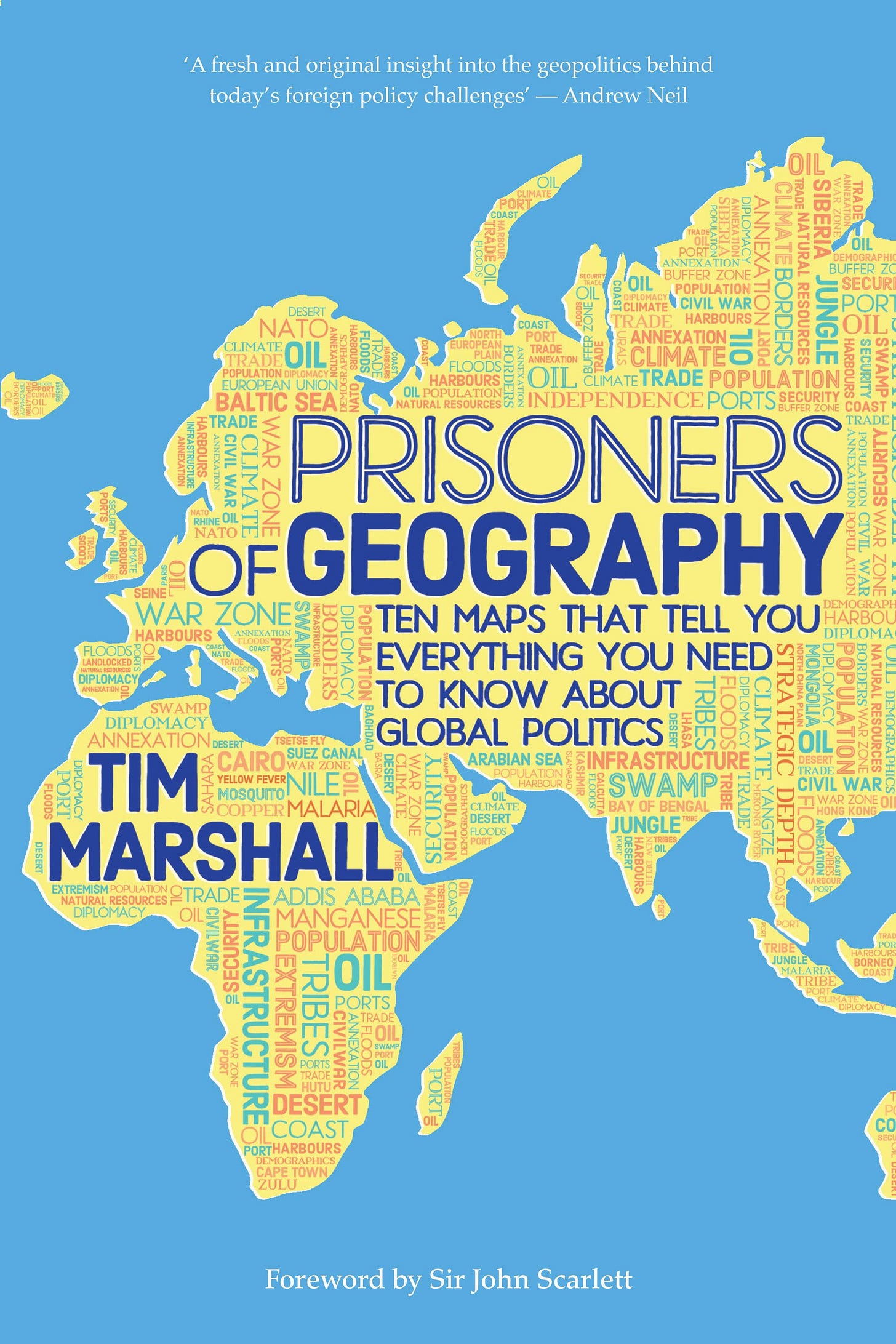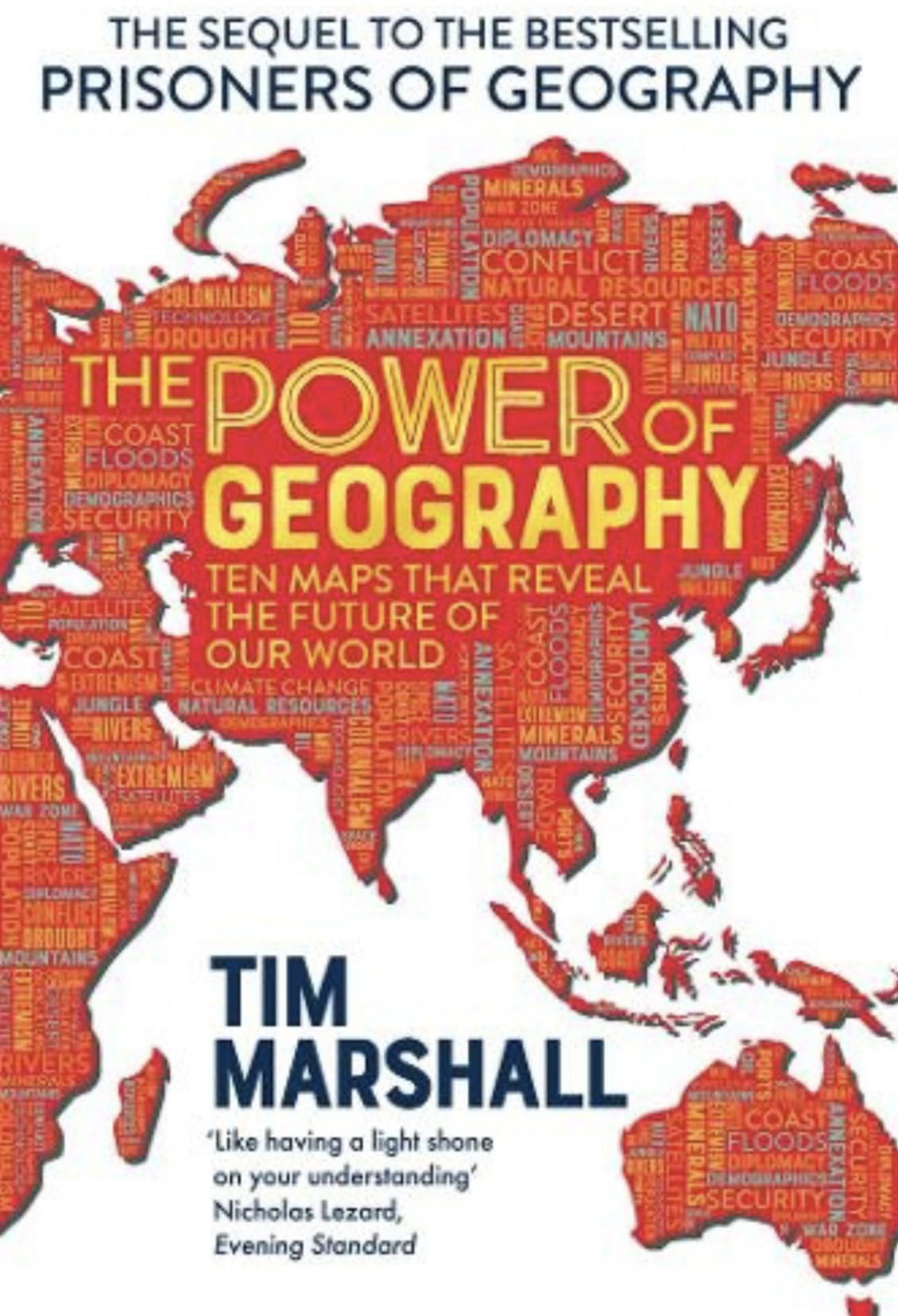Hello wonderful readers! I hope you enjoyed the previous edition and maybe even saved some books to your reading list.
This month’s edition will be a bit different. It contains books on the same topic that I believe go well together. In light of the (not so) recent events in the world arena, I have been thinking a lot about history, politics, geography, immigration, and other related issues in an attempt to figure out how we ended up where we are.
Failing to find a satisfying answer, I figured one thing: much of what’s happening today is dictated by our past and could be anticipated if we pay close attention to historical patterns. “The land on which we live has always shaped us", as Tim Marshall put it (more on it below).
This edition's book selection helped me dive into the above-mentioned topics and find my way to the underlying reasons and motivations of the events (even if I don’t agree with them). So here are my three non-fiction pics on politics, geography, and history.
#1 Prisoners of Geography: Ten Maps That Tell You Everything You Need to Know About Global Politics
by Tim Marshall

About the author
Tim Marshall is a British journalist, author, and commentator who specializes in foreign affairs, international relations, and geopolitical issues. Marshall has worked for various news organizations, including Sky News, BBC News, and LBC, where he shared his view on world events. During his career, Marshall reported from thirty countries and covered the events of twelve wars. He was on the front line in Syria, Afghanistan, and the Balkans, which is to say that he seems to be well-qualified to contribute to the debate. He has written several books on the topic, two of which we will discuss today.
What is the book about and why is it worth reading?
“Prisoners of Geography” offers an interesting perspective on the influence of geography on global politics. In particular, the book focuses on ten key regions around the world (Russia, China, the USA, Western Europe, Africa, the Middle East, India and Pakistan, Korea and Japan, Latin America, and the Arctic) and dives into how their geography impacts their history, conflicts, and interactions with other nations.
Marshall argues that a country’s geographic characteristics and resources can influence its decision-making and actions, which often leads to predictable patterns. Through vivid descriptions and historical examples, the author illustrates how mountains, rivers, deserts, and other features shape the current realities of countries. The author's knowledge and expertise are evident throughout the book (to the extent that I sometimes had to google the events or terminology he referred to, so you might have to do it too if you’re not super fluent in history).
What I learned is how nations have established themselves within their geography plays a significant role in shaping global politics and is crucial to our understanding of today’s world and our future.
Who is it for?
“Prisoners of Geography” would appeal to any reader interested in geopolitics and international relations and anyone who wants to gain a deeper understanding of global affairs.
#2 The Power of Geography: Ten Maps That Reveal the Future of Our World
by Tim Marshall

What is the book about and why is it worth reading?
“The Power of Geography” follows a similar format as “Prisoners of Geography” and explores the significance of geography in shaping global politics and future trends. According to Marshall, “There are moments when you catch a glimpse of something, and the opaque world of international politics becomes clearer”.
This book examines ten maps - Australia, Iran, Saudi Arabia, the UK, Greece, Turkey, the Sahel, Ethiopia, Spain, and Space - that depict different geopolitical challenges and developments, highlighting how these regions can shape the future trajectory of nations and regions.
In the “Prisoners of Geography”, Marshall focuses on the biggest players in the world arena, aiming to show how geography affects politics and influences the decisions of the nations and their leaders. On the other hand, in “The Power of Geography”, he highlights the regions that have the power to shape the future, analyzing the geopolitical challenges and developments they face. He looks at the events and conflicts that have been happening and may have significant consequences.
Overall, both books emphasize the importance of geography in understanding global dynamics, but they have different focuses in terms of the scope and regions examined. I find the two books greatly complement each other, and I enjoyed reading them in this order.
Who is it for?
"The Power of Geography” would appeal to the same audience. The book is for readers with a general curiosity about how geographic factors shape political landscapes and who want to gain a deeper understanding of the subject.
#3 Identity: The Demand for Dignity and the Politics of Resentment
by Francis Fukuyama

About the author
Francis Fukuyama is an American political scientist, philosopher, and writer. He has held academic positions at Stanford University, Johns Hopkins University, and George Mason University.
Fukuyama has written books on a wide range of topics, including political and social theory, international relations, and the challenges facing modern democracies.
What is the book about and why is it worth reading?
“This book wouldn’t have been written had Donald J. Trump not been elected president in November 2016”.
This is how Francis Fukuyama opens his book. Published in 2018, it explores the concept of identity and its role in shaping politics and societies. The book also sheds light on the challenges and opportunities it presents in today’s world.
The author argues that the human desire for recognition and dignity is a powerful force that shapes political behavior and influences societal dynamics. Fukuyama examines how individuals and groups prioritize their cultural, ethnic, or religious identities and how it affects political behavior. According to the author, the pursuit of recognition and the clash of identities can lead to social divisions.
Fukuyama argues that the growing importance of identity politics can be attributed to the erosion of dignity experienced by various groups. He believes we will endure continual conflict unless we develop a universal understanding of human dignity.
Who is it for?
This thought-provoking book is for readers interested in political science, sociology, and current affairs. It’s for anyone seeking a deeper understanding of the role of identity in today’s politics and society.
Before you go on with your day...
I'd love to hear from you if you want to share your opinion on the books or have any topic requests for the next editions. Just leave your thoughts in the comments or send me an email :)
You can also follow me on Medium or connect with me on LinkedIn.
That's it for today. Thank you for being here, and I'll see you next month!
Happy reading,
Liza
P.S. If you know someone who would be interested in joining the Bookmarked Newsletter community, feel free to share it with them.
Disclaimer: please note that the links to the books in this edition are affiliate links, so if you choose to make a purchase through those links, I may earn a small commission.



